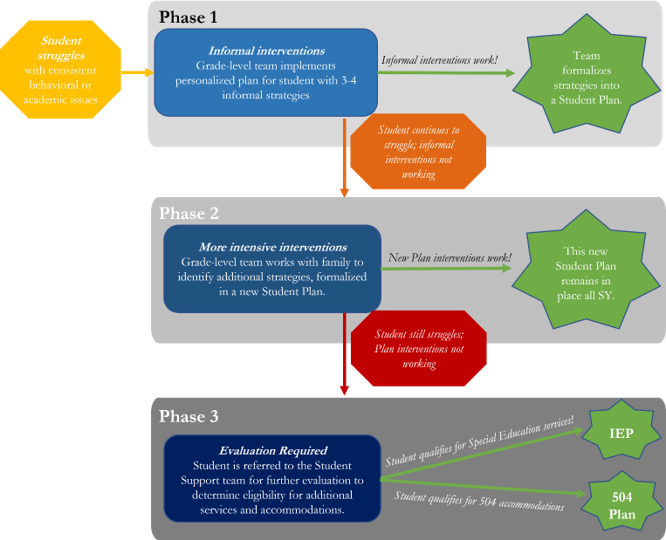Child Find Policy
Identifying and Supporting Students with Disabilities
Each student at Washington Latin brings unique talents and interests to the community. We recognize that each student is unique in the way they learn, communicate, and access the world around them. To ensure that each student has equal access to their public education, Washington Latin seeks to provide the individualized supports needed for students to fully access their education program. It is our belief at Washington Latin that – with the right supports – all students can grow and thrive socially, academically and emotionally. Providing this kind of individual support is central to our mission.
As an independent Local Education Agency (LEA), we are responsible under the Individuals with Disabilities Education Act (IDEA) and Section 504 of the Rehabilitation Act of 1973 to find, refer, and possibly deliver services for any student attending our school that may have a disability. According to State and Federal special education regulations, annual public notice to parents of children who reside within a local educational agency is required regarding Child-Find responsibilities. LEAs, including Washington Latin, are required to conduct Child-Find activities for children who may be eligible for services under IDEA and Section 504.
Our Child Find Policy provides guidance on how Washington Latin will locate and identify all enrolled children between the ages of 3 and 21 who may need special education and/or related services to address problems that may interfere with their learning. Please see the Transparency page of our website for the most current policy or search the Policies posted on the site.
Response to Intervention (RTI)
Our Response to Intervention (RTI) process is how we seek to provide emotional, behavioral and/or instructional support to assist students in achieving competencies both in and out of the classroom. It is a multi-tier approach to early identification and support of students with difficulties in all academic content areas. Student difficulties may include:
- Problems related to receptive and expressive language
- Conceptual understanding
- Dyslexia, dysgraphia, dyscalculia
- Vision impairment, hearing loss and other physical challenges
The RTI model can be utilized for social, emotional and behavioral concerns as well. Common behaviors addressed through RTI may include:
- Talking out of turn
- Verbal outbursts
- Relational difficulties
- Impulsivity
- Executive functioning challenges
The RTI begins with high-quality instruction and universal screening of all children in the general education classroom. High quality instruction allows for a natural process of identifying the learners who need additional support. These learners are then given supplemental assistance in the necessary areas. These services may be provided by a variety of personnel, including general education teachers, special educators and specialists. However, Washington Latin typically utilizes teacher support for the first two tiers of RTI. Academic and/or behavioral progress is also monitored during this phase.
If, during the process of delivering high quality instruction, a faculty member is concerned about a student’s ability to access the general education curriculum because of either academic or behavioral concerns, the teacher and the grade level team complete the RTI referral forms (see detailed process below). Note that there are myriad opportunities for students to access the general education curriculum through differentiated instruction, tutorial sessions offered by teachers after school, and one-on-one or small group support offered during study halls. Any member of a student’s immediate support network including a teacher, advisor, parent/guardian, administrator, or the student him/herself can make referrals of students to RTI. Because any number of varying factors can hinder students from making adequate progress in the general education setting, the RTI is a collaboration among parents, faculty, and students.
The chart below gives a high-level overview of the RTI process at Washington Latin during the identification, referral, and evaluation processes to ascertain whether additional supports and structures are needed to ensure appropriate instruction for each student.

Notice of Procedural Safeguards for Parents and Students
Parents and guardians who want to learn more about their rights under Section 504 of the Rehabilitation Act can obtain a copy of their procedural safeguards from any one of the following:
- Anna Jesseman, Director of Student Support and Mental Health (LEA), ajesseman@latinpcs.org
- James Kelly, Principal (2nd Street Campus), jkelly@latinpcs.org
- Shayna Rose, Student Support Compliance Manager (2nd Street Campus), srose@latinpcs.org
- Corey Martin, 504 Coordinator (2nd Street Campus), cmartin@latinpcs.org
- Khashiffa Roberts, Principal (Cooper Campus) kroberts@latinpcs.org
- Penny Bermudez, Student Support Coordinator (Cooper Campus) pbermudez@latinpcs.org
